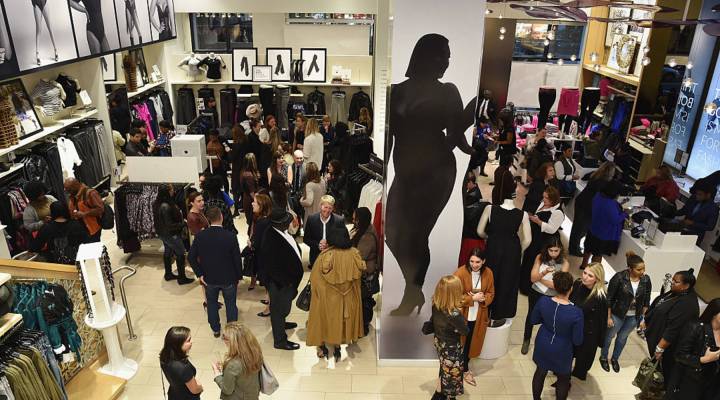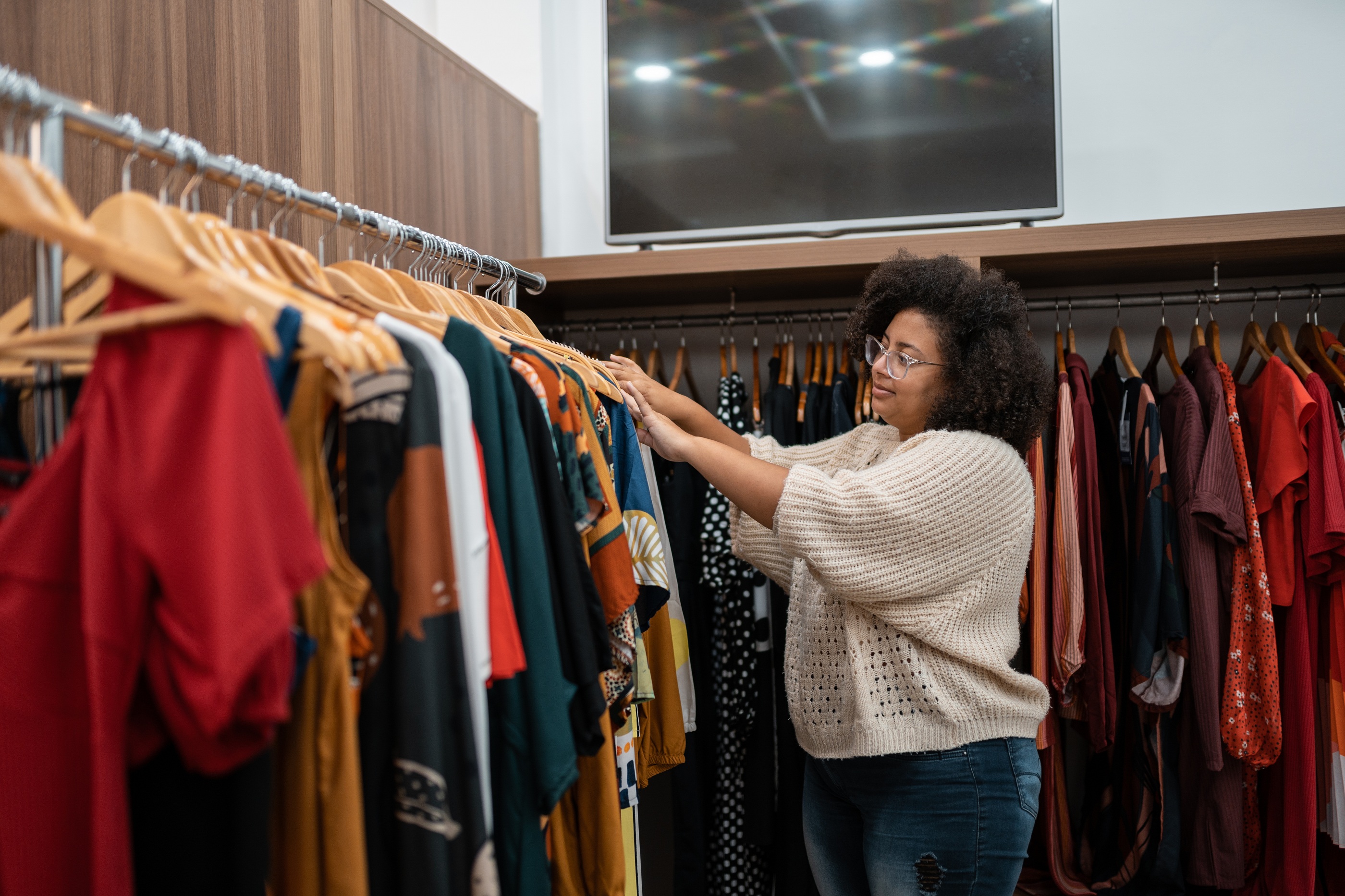
People are "begging" for plus-size fashion

Retail’s woes are well documented, but there’s one corner of the market that’s doing well: plus-size fashion. According to the NDP Group, a market analyst, the plus-size market grew by 6 percent in 2016, twice that of clothing retail overall. The folks at the front of plus-size fashion aren’t the design houses you’re used to hearing about, but smaller startups like Premme, founded by designers and social media icons Gabi Gregg and Nicolette Mason.
Ashley C. Ford, from Refinery29, wrote about plus-size fashion for New York Magazine. Marketplace host Kai Ryssdal spoke with Ford about her reporting and where the fashion industry might be headed next. An edited transcript of their conversation follows.
Kai Ryssdal: Where did women of larger sizes shop for fashion before?
Ashley C. Ford: Mostly Lane Bryant. And beforehand, there were just a lot of tricks, and tips, and there was a lot of making your own clothes, and there was a lot of, “Here’s how to buy things in straight sizes that are oversized, and make them fit your body.” Or, you know, things like that. It was a lot of internet sharing, and community sharing — how to adorn our bodies in a way that truly allowed us to feel as beautiful as we are.
Ryssdal: You mentioned internet sharing. You went into a brick-and-mortar retailer, and I can’t remember which one it was. You didn’t see your sizes there. And you went to the salesperson, and you said, “Where can I find stuff?” And they said online, and you went online. And it was a cornucopia, really, of stuff for you to wear.
Ford: Yes. Absolutely. That is something that you see with a lot of brick-and-mortar stores for some reason that I can’t entirely explain, and these places don’t really market the fact that they actually do carry sizes larger than a 10 or a 12 or a 14. And so, people just don’t know to go there. They have no idea unless they happen upon it. You know, it’s still most likely to happen online versus in the store.
Ryssdal: But you know, it’s interesting you mentioned marketing. And in this piece that you wrote, there’s some old Lane Bryant ads which are unbelievable. “Stout women dressed fashionably, look slender.” And then, “Calling all chubbies,” another woman, a full-size woman in a dress. And then you scroll down, and there’s a Lane Bryant ad just owning it. Modern day, out there, saying listen. In fact, here’s the tagline: “This body is made to be uncovered.” It’s remarkable, the change.
Ford: It absolutely is. And that change has really been driven by the community. As women have learned to love themselves, and to understand that every healthy body is not a straight size, we’ve pushed this market. And I love seeing that ad from Lane Bryant. I love that it ended up being part of the piece, because it is a great representation of how far we’ve come. And there’s so much further to go.
Ryssdal: Here comes the nuts-and-bolts question: retail has been struggling, as I’m sure you know.
Ford: Absolutely.
Ryssdal: Does this emphasis on plus-size fashions and the profit it can bring, does it last, do you think?
Ford: I think it does last, and I think it lasts because the market is clearly starving for it. And on top of that, the market right now is really being driven by teen voices. You know, like, I’m 30. So it’s like, you know, I could be saying this, and then, you know, 30 years it could be like, who cares? That generation is gone. You know, whatever. But the truth of the matter is, people who are much, much younger than me are begging for these options — are less begging than demanding these options. I think offering options is never a bad thing, especially to a community who is ready and willing to give you their money.
| Plus-size women lose fast fashion option with Lovesick closure |
| Why clothing sizes are all over the map |
There’s a lot happening in the world. Through it all, Marketplace is here for you.
You rely on Marketplace to break down the world’s events and tell you how it affects you in a fact-based, approachable way. We rely on your financial support to keep making that possible.
Your donation today powers the independent journalism that you rely on. For just $5/month, you can help sustain Marketplace so we can keep reporting on the things that matter to you.

















